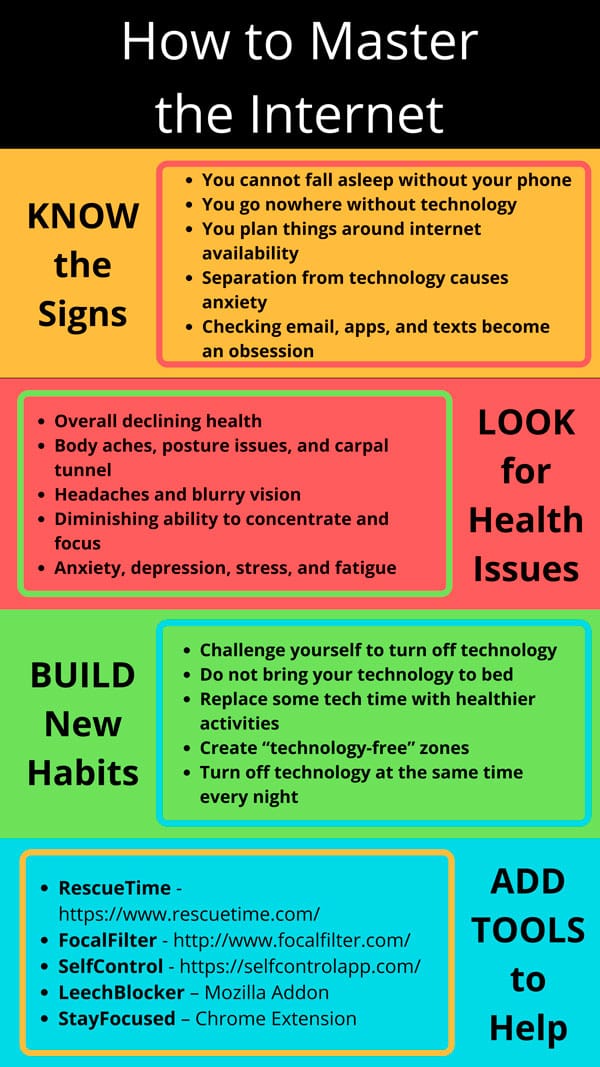How to make the internet your servant, not your master


By Michelle Post
The Pew Research Center (PRC) is a leading expert in the tracking, analyzing and reporting of data and how it affects an individual. The PRC has been tracking peoples’ internet use since the early 2000s and has reported a significant rise in its use. Every day at least 9-in-10 adults use the internet. MediaKix, an influencer marketing agency, recently stated that an individual spends 5.4 hours a day on social media networks. The New York Post reported in July 2017, that the average worker spends at least five hours a week on the internet, at the cost of $15 billion in lost productivity.
What does all this mean? It means we are a society becoming addicted to the internet and the devices that access the internet. Carson-DeWitt in 2015 defined internet addiction, “as a psychological disorder that causes people to spend so much time on a computer that it affects their health, job, finances or relationships.” And there is a rise in the fear of missing out (FoMO), which was first coined in 2004 by Patrick J. McGinnis. FoMO is defined by Wikipedia as, “a pervasive apprehension that others might be having rewarding experiences from which one is absent.”
We are afraid to miss the latest email, post, update, story, tweet, or whatever; but the reality is we need not live in FoMO. There is a way to make the internet and its devices your servant, not your master. With a simple four-step process (pictured left), you have a plan to become the master of the internet …